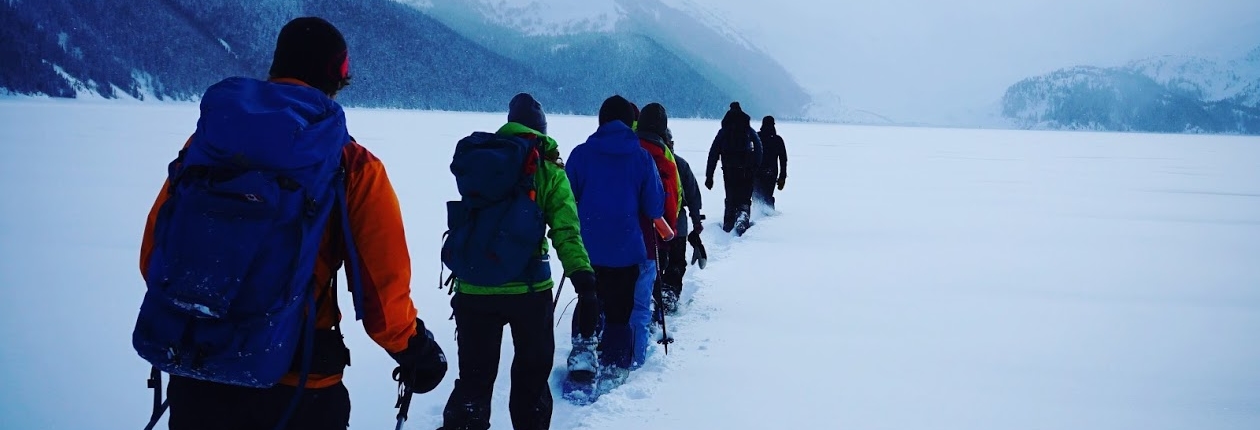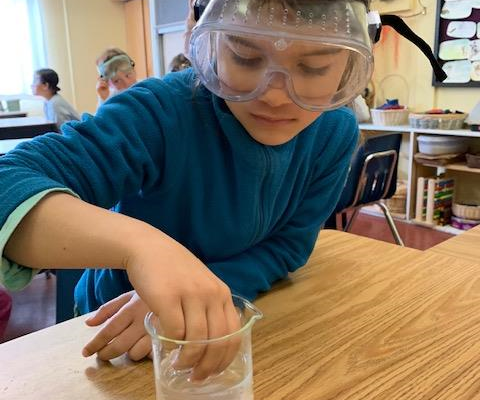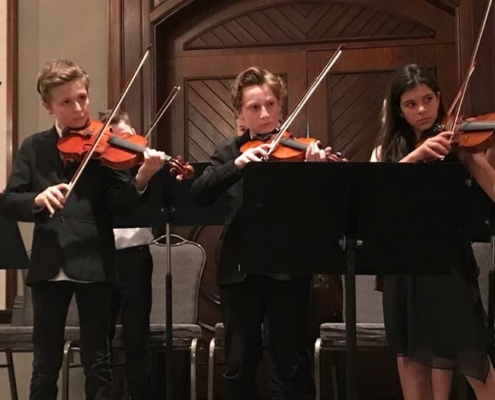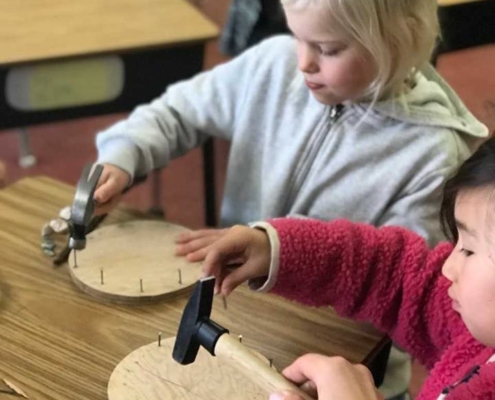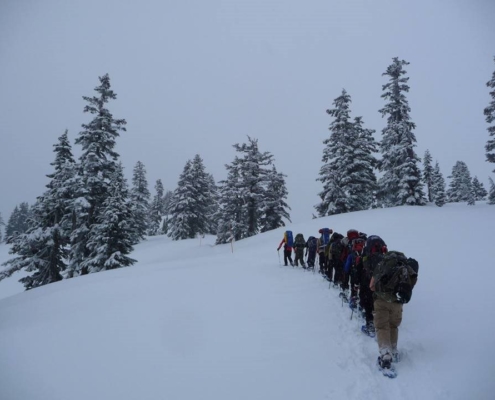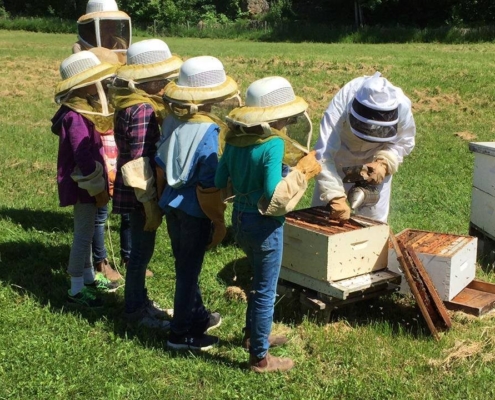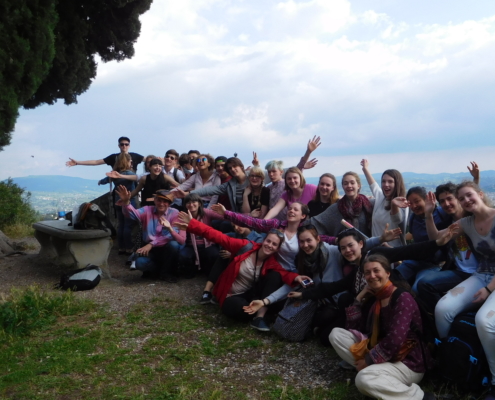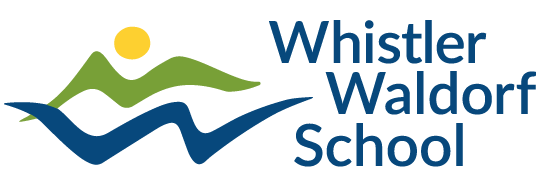Come experience the unparalleled feeling for yourself
Whistler Waldorf School is one of three Waldorf High Schools in Canada. We offer a varied liberal arts and experiential-based educational curriculum that is developmentally appropriate for all ages including:
- Playschool at 2.5 years to 5 years old
- Grade School from Kindergarten to Grade 4
- Middle School from Grade 5-7
- High School from Grade 8-12.
There are various reasons families and students choose WWS for their schooling needs and quickly realize that there is no place else they would rather be.
On the outset, many prospective families and students will notice the balanced, multi-disciplinary curriculum and supportive school environment including:
Much of the difference is in how students, staff and parents feel when they are at school everyday – feeling welcomed and appreciated. It is a special atmosphere filled with deep respect and engaged members.
Unique Learning Opportunities
Experiential learning
Students participate in a wide range of experiential learning activities. Experiential learning in a general sense, is the process of learning through experience. It is important to note however, that experiential learning in Waldorf Schools is not limited to creating projects or visiting a farm. If any of you have ever been moved by a compelling story, an eloquent song or a powerful play, you will understand the power of imagination for enhancing learning connections, and as an “experience” in its own right.
WWS intentionally incorporates a broad and balanced range of imaginative, creative, and kinesthetic experiences within the academic program to enhance learning outcomes. A unique example of experiential learning at WWS is in the act of baking a loaf of bread in the Early Years program where the whole process is explored from grinding the grain, milling the flour, baking the bread to eating it with jam at the end. Other experiential tasks such as ‘churning the butter’, caring for the bees, growing vegetables in the garden or experimenting with science – it’s all part of the ‘whole’ experience of learning at Waldorf.
Liberal & Fine Arts Applications
Liberal arts – Students learn how to be divergent thinkers and understand the world around them as well as across cultures and times. Sciences, arts, and humanities, with themes from philosophy, logic, linguistics, literature, history, sociology, and more, play an integral part in Waldorf’s ‘whole learning’ approach.
Fine arts – Music, Performance Arts (Drama) & Visual Arts
Music: Right from Early Years, students sing daily, developing an ear for tone and harmony, while younger students play wooden pentatonic flutes. By grade four, the violin is started with basic music theory, notation and music history. Choir and guitar are included in later years. Performance Arts: A dramatic performance emerges in each class from the curriculum throughout the year, and together students work on sets, costumes, lighting and music. In the High School, students also study character development through the Comedy and Tragedy, Greek Drama, and Shakespeare courses. Visual Arts: WWS offers a comprehensive program of art instruction, drawing and creative interpretation including various forms such as the Early Years work of painting and beeswax modelling to the printmaking, stone work and clay modelling in the High School.
Handwork & Practical Arts
Fibre Arts – Playschool through Grade 7 students are exposed to a rich and varied handwork curriculum. Our students receive in-depth instruction on knitting, crochet, embroidery, pattern design, hand-sewing, and machine sewed projects. The students then use their experience in fibre arts skills to add woodworking projects which all continue through to the High School. The obvious benefits of the handwork program include improved hand-eye coordination, basic math skills such as counting, the four math processes, basic geometry, the ability to understand and follow a process from concept to completion, as well as and the ability to focus on a project for an extended period of time.
Practical Ability – In addition to the intellectual aspects, handwork is also a great opportunity to foster self-reliance and instill a sense of awareness and concern for the environment. Most of the items we use on a daily basis are mass produced and are often disconnected from how they are made. Handwork enables students to experience firsthand the nature and processes involved with making different items and using different tools and materials.
Outdoor Education
Whistler Waldorf School engages all K-12 students and integrates outdoor education into its curriculum in innovative and exceptional ways, taking advantage of our region’s rich biodiversity and natural wonders. Our High School students participate in 3 Outdoor Ed trips per year and students in Grades 4 and up participate in 1 trip. The primary goal is to provide all students with physically, emotionally and socially challenging wilderness experiences. Students learn to safely navigate in the wilderness and are encouraged to engage and reflect on their roles as stewards of the earth. While the outdoor activities are designed to challenge our students mentally and physically — for many students — the outdoor education trips are an experience of a lifetime.
Environmental Stewardship
The school, staff and faculty are committed to environmental stewardship in the planning, practices, and educational direction for the Whistler Waldorf. We believe in enabling students to become stewards of our fragile planet and students are engaged in many practical tasks such as gardening and composting and a love for the outdoors is nurtured throughout our curriculum. An example of an environmental project that the grade school has been actively involved in since 2019 is a bee-keeping project to learn and improve the habitat for honey-bees so we can ensure their survival for the future. Regular stewardship activities that the students participate in may be trail building, planting of trees, farming instruction and specific community recycling initiatives.
Service Learning, Community Building & Cultural Exchanges
The school provides students with opportunities to contribute and draw upon voluntary service experiences in their own school, in our community and eventually out in the world. Students are encouraged to help with community building projects (based on their main learning themes), which can help foster outreach and cultural understanding in both a larger community and global sense. By high school, students can choose to participate in International exchange programs with other Waldorf students, as well as a worldwide service trip where youth provide service work in another country. The learning experience expands in their understanding of what they have already contributed to ‘their world’ during their school years.

